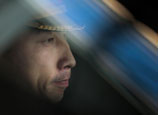
Propelling the market is China's 12th Five-Year Plan (2011-15). For the first time, the nation's social and macro-economic blueprint looked at senior care and easing foreign investment restrictions in the private health sector.
"Central and local governments have never before been so supportive on attracting private investors to the senior care industry," said Qu Qin, a lawyer with Shanghai Co-Effort Law Firm and editor of China Senior Housing and Care Newsletter.
"The government is also planning to issue more regulations on licensing, operator/nurse qualification, elderly protection, and more preferential policies in subsidies, land supply and taxation, among others. In the past, (foreign investors) might not have been even able to find where and how to get approval for opening a facility."
While Cascade may be among the first foreign companies in Shanghai to test the new policies for the senior health sector, it is not alone in its belief that the market is now ready.
Fortress Investment Group, a hedge fund in New York, said it wants to invest more than $1 billion in the senior housing market in a domestic conglomerate partnership with Fosun Capital Group.
While the money might be coming in and the regulations may be favorable, foreign investors face daunting cultural barriers.
For hundreds of years, Chinese family tradition has put it upon children to take care of their elderly parents.
The notion of filial piety has carried on in modern times: In 1996 the government set out a policy that required children to take care of their aged parents.
But as more and more families opt to live in dual-income households and as the pressures put on families by the family planning policy increase, many children are now left to take care of both their parents as well as four grandparents — a concept known as the "421" family structure in China.
"The situation is more serious due to the '421' family structure. It generates more empty-nest families who will need institutional care," Qu said.
















 Nutritious lunch provided in Taipei's elementary school
Nutritious lunch provided in Taipei's elementary school


![]()
